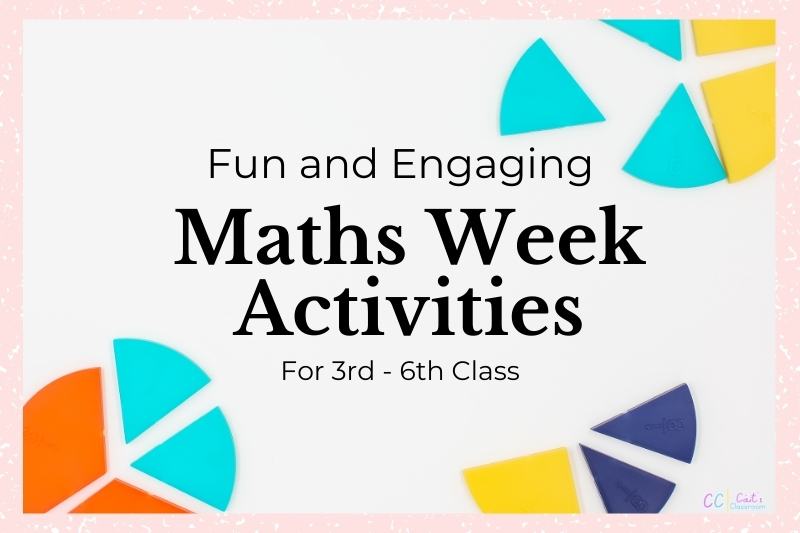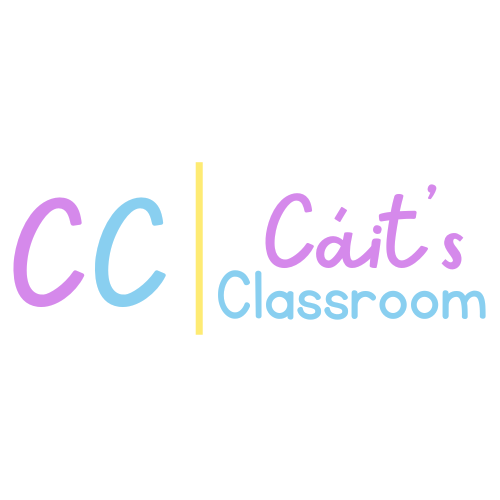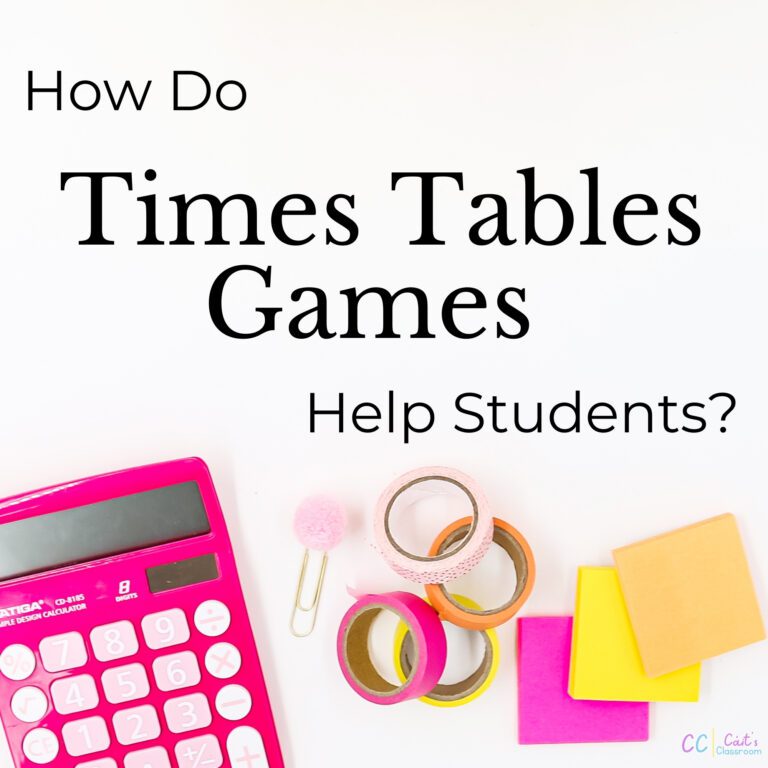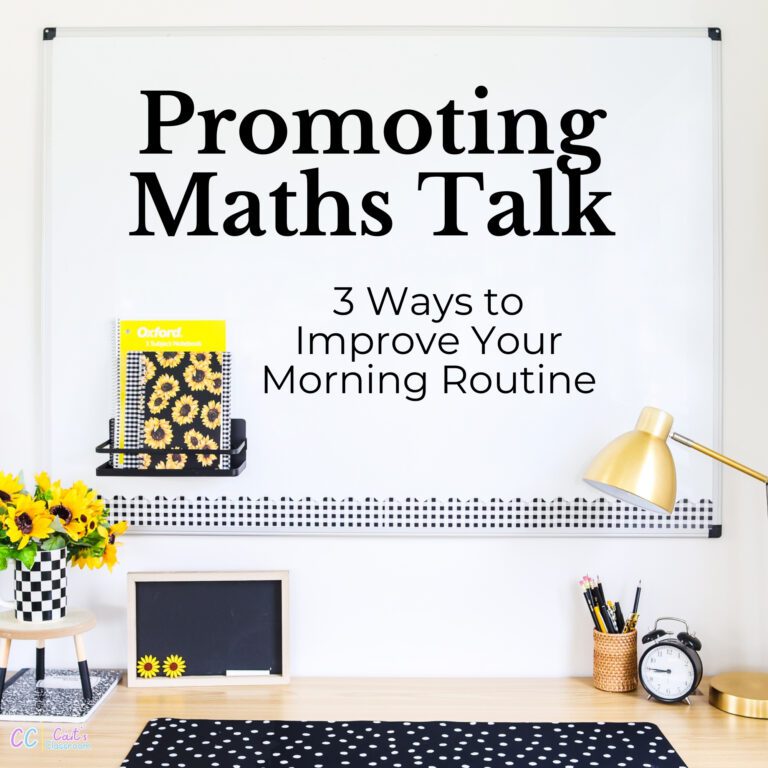Maths Week is always a fun and enjoyable time for students and teachers alike! It’s the perfect chance to celebrate mathematics and engage students with hands-on, interactive activities. As a teacher in a senior school, I’ve discovered that blending hands-on and digital activities can make Maths Week especially enjoyable for older students. Here are some of my favourite maths week activities that are easy to facilitate in the classroom and a couple of digital activities from Cáit’s Classroom that you’re students are going to love. Join the fun and celebrate Maths Week 2024 with me on October 12th – 20th!

1. Maths Scavenger Hunt
One of the best ways I’ve found to get students excited about maths is through a scavenger hunt! Scavenger hunt activities are super easy to set up and can be adapted to include different mathematical concepts depending on the age and ability of your class.
How to Organise Your Own Maths Scavenger Hunt:
- Preparation: Create a list of maths-related clues or problems that lead students to different locations around the classroom or school. For example, a clue might be a simple maths problem, and the answer could hint at an area of the room they need to go to next.
- Execution: Divide students into small groups and give them the first clue. As they solve each problem, they’ll find the next location and clue.
- Goal: The goal is for each team to complete the scavenger hunt by solving all the problems and reaching the final destination.
Example Clue: “I have twice as many legs as a human. Find me to get your next clue.” (Answer: a chair/desk)
2. Maths Relay Race
Another engaging activity my classes have loved in the past is a Maths Relay Race, which combines physical activity with mathematical problem-solving.
How to Organise a Maths Relay Race:
- Preparation: Prepare a set of maths problems suitable for your students’ level. Divide these problems into several stations around the playground or school hall.
- Execution: Divide the class into teams. Each team member must run to a station, solve a problem, and then return to tag the next teammate, who will run to the next station.
- Goal: The first team to complete all the problems and finish the race wins.
Example Problem: “Solve 140,505 + 84,950 and write your answer before running back.”
3. Maths Minute to Win It
My students have also thoroughly enjoyed ‘Maths Minute to Win It’ as one of their Maths Week activities. This game combines fast-paced challenges with mathematical problem-solving.
How to Organise Maths Minute to Win It:
- Preparation: Create a list of maths-related challenges that can be completed in one minute. These can include mental maths problems, simple geometric puzzles, or tables-based tasks. Set up a timer and prepare any materials needed for the challenges.
- Execution: Divide the class into small groups or pairs. Each group rotates through the different challenges, with each member of the team taking turns to complete a challenge within the one-minute time limit.
- Goal: The objective is for each team to complete as many challenges as possible within the minute. Award points for each successfully completed task, and tally up the points to determine the winning team.
Example Challenge: “Solve 56 x 79 and write your answer on the board within one minute.”
4. Pop Playoff
For those looking to incorporate digital activities, Cáit’s Classroom offers some fantastic resources. Boost multiplication fact fluency during Maths Week with ‘Pop Playoff,’ an interactive PowerPoint game bundle designed to make practising times tables an exciting group challenge!
How to Organise Pop Playoff:
- Preparation: Download the ‘Pop Playoff’ game bundle and open one of the PowerPoint gameboards on your smart board. It will automatically open in slideshow mode so that you can get straight down to play.
- Execution: Divide the class into four teams. Students take turns popping buttons on the digital gameboard, revealing multiplication tables questions. They then answer the questions to earn points for their team. Each of the 11 games includes 12 questions, making it a quick and engaging activity, perfeact for a Maths Week warm-up!
- Goal: The team with the most points at the end of the game wins. Points are earned by correctly answering multiplication tables questions, with animated answers providing immediate feedback.
Example Question: “What is 7 x 8?” (Students pop a button to reveal this question and must answer it correctly to earn points.)
5. Bubble Blast
Similar to ‘Pop Playoff’, ‘Bubble Blast‘ is an interactive way to boost division fact fluency this Maths Week. The ‘Bubble Blast‘ game bundle is perfect for turning division tables practice into an exciting one-on-one challenge! Why not host a whole school competition to find the ultimate ‘Bubble Blast’ tables champion?!
How to Organise Bubble Blast:
- Preparation: Download the ‘Bubble Blast’ game bundle and open the PowerPoint gameboards on your smart board or on individual devices. The gameboard will open automatically in slideshow mode.
- Execution: Divide the class into pairs for head-to-head competition. Students take turns bursting bubbles on the gameboard to reveal division table questions. They answer the questions to earn points, with animated answers providing instant feedback. Each of the 11 games includes 12 questions.
- Goal: The student with the most points at the end of the game wins. Points are earned by correctly answering division questions.
Example Question: “What is 56 ÷ 7?” (Students burst a bubble to reveal this question and must answer it correctly to earn points.)
Maths Week is an exciting opportunity to make learning fun and interactive for students. By incorporating hands-on activities like scavenger hunts, relay races, and quick-fire challenges, we can engage students and make maths enjoyable. Digital resources like “Pop Playoff” and “Bubble Blast” from Cáit’s Classroom add an extra layer of enjoyment to the week, blending technology with learning to boost fact fluency and teamwork. With these activities, Maths Week becomes a celebration of mathematics that students look forward to. Let’s make Maths Week 2024 unforgettable and inspire a love for maths in our classrooms!




